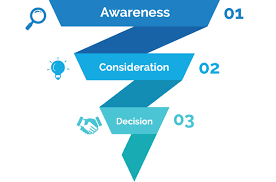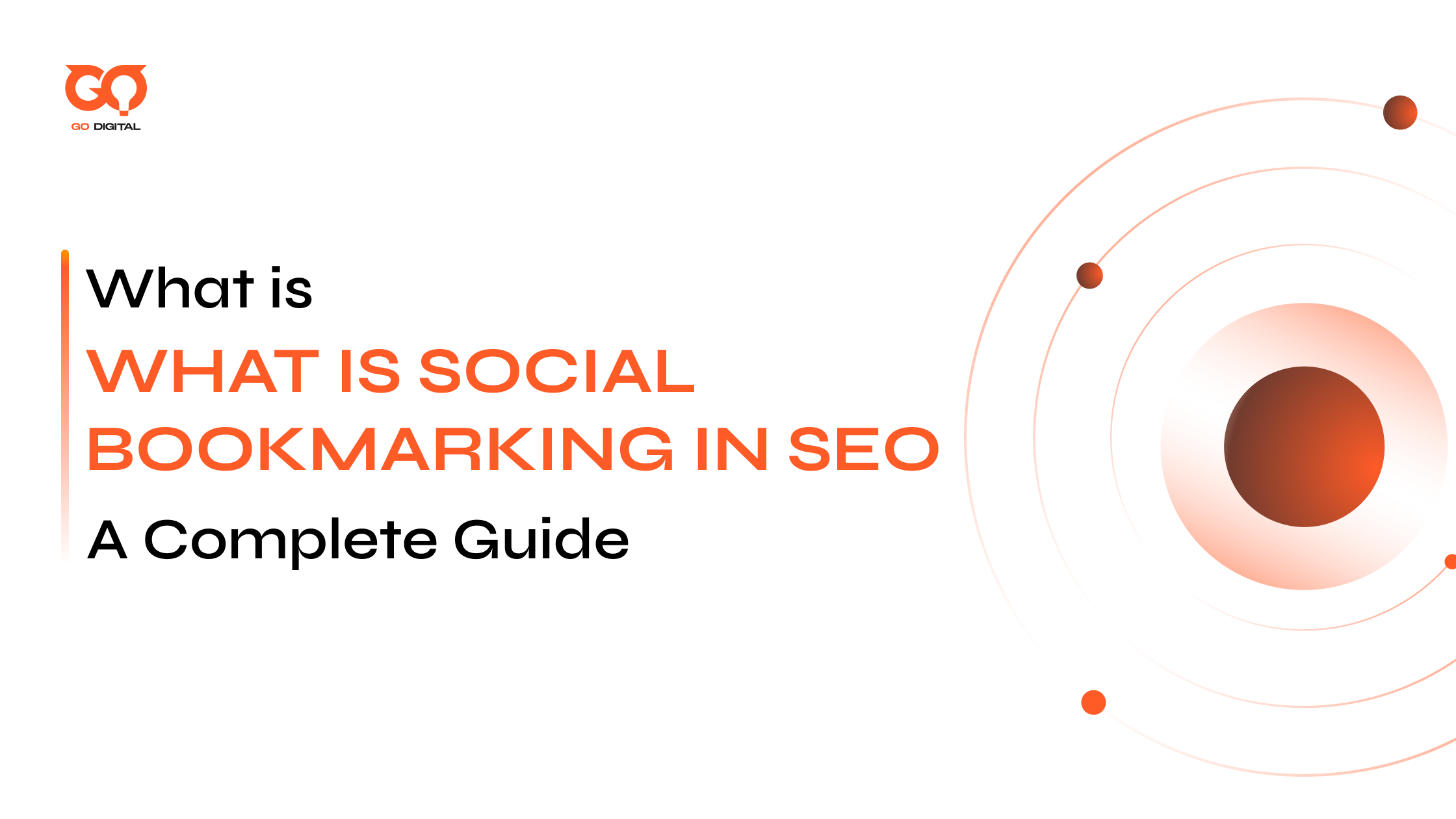A solid B2B content marketing strategy helps your business attract, engage, and convert other businesses. Understanding what B2B content marketing is the first step to success. This article explains the types of B2B content marketing strategies, key steps to build one, and why it matters. Let’s explore now!
Key Takeaways
|
1. What is B2B Content Marketing Strategy?
To understand how to build an effective B2B content marketing plan. Let’s take a look at what it really means and why it’s so important in today’s business environment.
Defining B2B Content Marketing Strategy
B2B content marketing strategy is a roadmap that helps businesses attract and engage other companies using helpful and valuable content. The strategy involves creating content that solves problems, answers questions and builds trust with companies like Salesforce, HubSpot, IBM or Shopify.
It often includes formats like blog articles white papers, webinars, videos and social media content tailored for business buyers.

B2B content marketing strategy is a roadmap to help businesses grow
The Importance of B2B Content Marketing
Content marketing B2B matters because it builds trust and shows expertise. Unlike B2C marketing, B2B often deals with bigger budgets and longer decisions.
This strategy helps your company show thought leadership, stand out from competitors and prove that you understand your industry. High-quality content shows that you’re not just selling but helping your audience grow their business.
2. Types of B2B Content Marketing Strategies
Different goals need different types of content. Let’s go through the most common ones.
Educational Content
Educational content helps businesses solve problems by offering useful information instead of pushing a sale. This includes blog posts, tutorials, guides, webinars and FAQs. It positions your brand as helpful and knowledgeable.
For example, a SaaS company might write a guide on choosing the right CRM. This builds trust early in the buyer’s journey by offering real value before a purchase decision is made.
Thought Leadership Content
Thought leadership content showcases your authority in the industry through white papers, research, interviews and expert-driven analysis. It helps your brand stand out and earns long-term trust.
For example, a cybersecurity firm publishing a white paper on cloud threats can gain serious credibility. According to LinkedIn’s Thought Leadership Impact Study, 88% of decision-makers say thought leadership content increases respect for a brand (Source)

Thought leadership builds authority, trust and sets your brand apart
Case Studies and Testimonials
Case studies and testimonials are powerful tools that build trust by showing real results. Case studies explain how your product or service solved a specific problem while testimonials offer quick quotes from satisfied clients that highlight your value.
For instance, a digital agency may present how their SEO strategy boosted a client’s traffic by 80%. This content works well in the decision stage, helping reassure buyers. A Demand Gen Report revealed that 78% of B2B buyers use case studies when researching solutions (source)
Video Marketing
Videos are one of the most engaging content types. In B2B marketing, videos can explain products, share customer stories and deliver content in a more digestible format.
For example, a B2B SaaS company creates a short explainer video highlighting how their CRM software simplifies sales tracking. They include real-time dashboard footage and voiceover instructions. Then, sharing this on YouTube or LinkedIn helps attract leads and boosts user engagement.
Social Media Marketing
Social Media Platforms like LinkedIn, Twitter and YouTube are key channels for distributing B2B content. They boost brand awareness and drive traffic to your site. It also helps build relationships and trust through consistent interaction.
For example, a marketing agency posts a thought leadership article on LinkedIn about the future of digital advertising. They also post on Group Facebook key takeaways with eye-catching graphics. This strategy increases their reach and positions them as experts in the industry.

Interaction on the platform is to boost brand awareness
3. Key Considerations When Developing a B2B Content Marketing Strategy
Before you start creating content, you need to set up a specific b2b content marketing strategy. Here are four things to think about:
Know Your Target Audience
Understanding your audience is the foundation of a successful B2B content marketing strategy. You need to know who you’re talking to what challenges they face and what kind of information they’re looking for.
You can conduct surveys, interview current clients and analyze existing data to better understand the audience. Tools like SEMrush, Ahrefs, Google Analytics are excellent for identifying who engages with your content and how.
Content that reaches the right audience will lead to better engagement and higher conversion rates. When businesses feel like you “understand” them, they will trust and buy from you.

Align Content with Buyer’s Journey
Every buyer goes through several stages: awareness, consideration and decision. Your content should match each stage. This ensures you’re giving people the right information at the right time, guiding them from problem awareness to solution selection.
- Awareness Stage: Use blogs, infographics and social posts to highlight problems your audience faces.
- Consideration Stage: Offer webinars white papers and comparison guides to help them evaluate options.
- Decision Stage: Provide case studies, demos and consultations to push them toward a decision.
You can start with awareness-focused content like blog articles to attract interest, then follow up with conversion-driven materials such as case studies or product demo videos to guide prospects toward making a decision.

Content marketing funnel showing different stages of the buying journey
Consistency and Quality Over Quantity
Publishing regularly is important but quality beats quantity every time. High-quality content establishes authority, builds trust and leads to higher engagement. On the other hand, low-quality content can hurt your brand and waste your costs. So, let’s focus on these key elements:
- Clear, simple language
- Data-backed content that provides real value
- Original ideas or unique perspectives
- Strong visuals (charts, infographics, videos)
Please set up a content calendar to plan and pace your content. This helps maintain a consistent publishing schedule without sacrificing quality. Addition, you also invest in editing and design. Because a polished piece makes a better impression and increases the chances of being read, shared and remembered.
Focus on SEO and Content Distribution
To reach the right audience, optimize it for search engines (SEO). Use tools like SEMrush or Ahrefs to find search volume, keyword difficulty and related terms. Then incorporate these keywords naturally into your titles, headers, meta descriptions and body text.
Also, make sure to distribute your content through the right channels such as LinkedIn and Twitter, relevant industry groups, email newsletter,…

Tracking keyword search volume using SEM Rush
You can use internal linking to guide readers to related topics. For example, if you’re talking about marketing strategy, link to articles like B2B Marketing Plan Template or Complete Marketing Solutions.
| >>Read more: Expert B2B Marketing Plan Template for Accelerating Business Growth in 2024 |
4. Why Should Businesses Use a B2B Content Marketing Strategy?
After learning “what is b2b content marketing” but still not understanding why it is worth investing in. Here are some factors that should answer your question:
Build Strong Relationships and Trust
Content marketing helps build that confidence by showing your expertise and commitment to helping your audience succeed. When you consistently provide valuable insights, buyers start to see you as a reliable source of information. This positions your brand as a helpful guide.
Relationships built through content are long-lasting. Clients who trust your brand are more likely to return, refer others and stay loyal over time.

Content helps build strong relationships and trust
Long-Term Lead Generation
Compared to conventional marketing techniques, content marketing allows businesses to attract long-term leads. By consistently providing meaningful and relevant content, you increase the chances of turning potential customers into loyal clients over time.
Instead of buying ads that stop working once the budget runs out, content attracts traffic and leads 24/7. By nurturing leads through newsletters, case studies or webinars, you slowly move them down the funnel until they’re ready to buy.
For example, a guide on “Top Digital Marketing Strategies for Startups” might bring in steady traffic from Google searches, attracting startups who are actively looking for solutions.

Content marketing allows businesses to attract long-term leads
| >>Read more: Complete Marketing Solutions: Comprehensive Digital Marketing Strategies for Small and Medium Businesses |
Cost-Effective Marketing
Compared to paid ads or traditional marketing methods, content marketing offers more value. With the right strategy, your content continues to generate leads and sales long after it’s been published. Once your content is live, it can continue delivering results without any extra spend.
For example, an SEO-driven blog on “Benefits of Outsourcing Marketing” can bring in targeted traffic for years without needing additional funds.
| >>Read more: 10 Strategic Benefits of Outsourcing Marketing for Businesses of All Sizes |
5. What Makes a B2B Content Marketing Strategy Effective?
Some strategies perform better than others. These are the things that make your strategy really work.
Alignment with Business Goals
An effective B2B content marketing strategy should be closely aligned with your business objectives. It’s about supporting real business outcomes like generating leads, increasing sales, boosting brand awareness or improving customer retention.
For example, if your goal is brand awareness, focus on social media visibility. You can set clear goals and use KPIs (key performance indicators) to measure success such as lead conversions, time on site or organic traffic growth.
Targeted and Relevant Content
Craft content that is tailored to your audience’s industry and role. Focused topics boost engagement and attract better leads. For example, instead of writing a general article about digital marketing, a more targeted approach would be: “Digital Marketing for B2B Tech Startups”.
Additionally, content should be tailored not just by industry but by role. What interests a CFO may be very different from what interests a Marketing Director.
Measurable Results and Analytics
Continuously measuring the performance helps you understand what’s working what’s not and where you should focus your efforts. By analyzing metrics such as traffic, time spent on content, conversion rates, bounce rates, social engagement, you can adjust your strategy to achieve better results.
To measure success, you can set clear KPIs from the start, such as: Increase organic traffic by 25% in 3 months or Generate 50 new leads from white papers.
Cross-Platform Consistency
Consistency builds brand trust by reinforcing your identity and strengthening your message. Maintain a cohesive visual style and tone while tailoring content for each channel. Stick to a realistic publishing schedule, like weekly blogs or monthly newsletters.

Cross-Platform Consistency is key to building brand trust
6. Key Takeaways for Small Businesses When Developing a B2B Content Marketing Strategy
If you’re a small business owner, these practical tips will help you get the most out of your resources. Specially:
Focus on the Quality and Relevance of Content
Choose one or two core formats you can manage effectively like blogs and Facebook posts. Deliver deep, useful insights instead of generic fluff. This approach builds credibility and gets better long-term results.
For example, a small tech consultancy might publish monthly deep-dive articles on security best practices, paired with simple explainer videos. This focused strategy will have more impact than trying to cover every trending topic.
Use Data to Drive Your Strategy
Track performance using tools like Google Search Console or CRM platform to gain insight. Set monthly goals and tweak your strategy as needed based on real numbers. Then double down on what works.
For instance, if you notice that SEO-related content brings in the most traffic, consider writing a series on SEO strategies for B2B brands. Use A/B testing on emails or landing pages to refine your approach.

Use A/B testing on landing pages to refine your approach
Consistency is Key
Set a schedule that you can stick to whether it’s a weekly blog, a monthly newsletter or a quarterly white paper. You can plan your content in advance using a calendar to avoid minute-by-minute scarcity. This keeps your site visible and returns value over time.
7. How GODI Can Help with Your B2B Content Marketing Strategy
If you are looking for a B2B Content Marketing Strategy agency, Golden Owl is the perfect choice. Let’s see how Golden Owl can support your content strategy.
Tailored Content Marketing Plans
At Golden Owl, we know that a one-size-fits-all doesn’t work in B2B marketing. Each business has unique goals, industries and audience expectations. That’s why we craft customized B2B content marketing strategies tailored specifically to your needs.
We start by understanding your brand, your target clients and what makes your solution different. Then, we build a content roadmap designed to attract, educate and convert your ideal clients. Whether you’re looking to boost traffic, generate leads or grow your authority, we align the content with those specific goals.
Expertise in Cross-Platform Marketing
Golden Owl knows how to distribute it for maximum impact. Our team understands how to tailor content for different platforms, from LinkedIn to YouTube to email newsletters.
We help your content travel far and wide, reaching decision-makers. By leveraging SEO, we make sure your content gets noticed by the right people.
Addition, we analyze performance, fine-tune campaigns and help you repurpose your content into multiple formats so you get more value from every piece.
Cost-Effective Solutions
Hiring an in-house team or juggling multiple agencies can be expensive and time-consuming. Golden Owl offers a more affordable, streamlined solution. We provide end-to-end content marketing like strategy, creation and distribution.
You’ll save time, reduce costs and get better results with our efficient workflow. Whether you’re a startup or an established business, we offer scalable packages that grow with your brand.
Conclusion
A B2B content marketing strategy is key to building trust, brings leads and grows your brand. Whether you’re just getting started or looking to level up your efforts, Golden Owl is here to help you navigate the process. We create tailored, results-driven strategies that maximize ROI.
Let Golden Owl Digital be your trusted partner in crafting a winning B2B content strategy that works.







